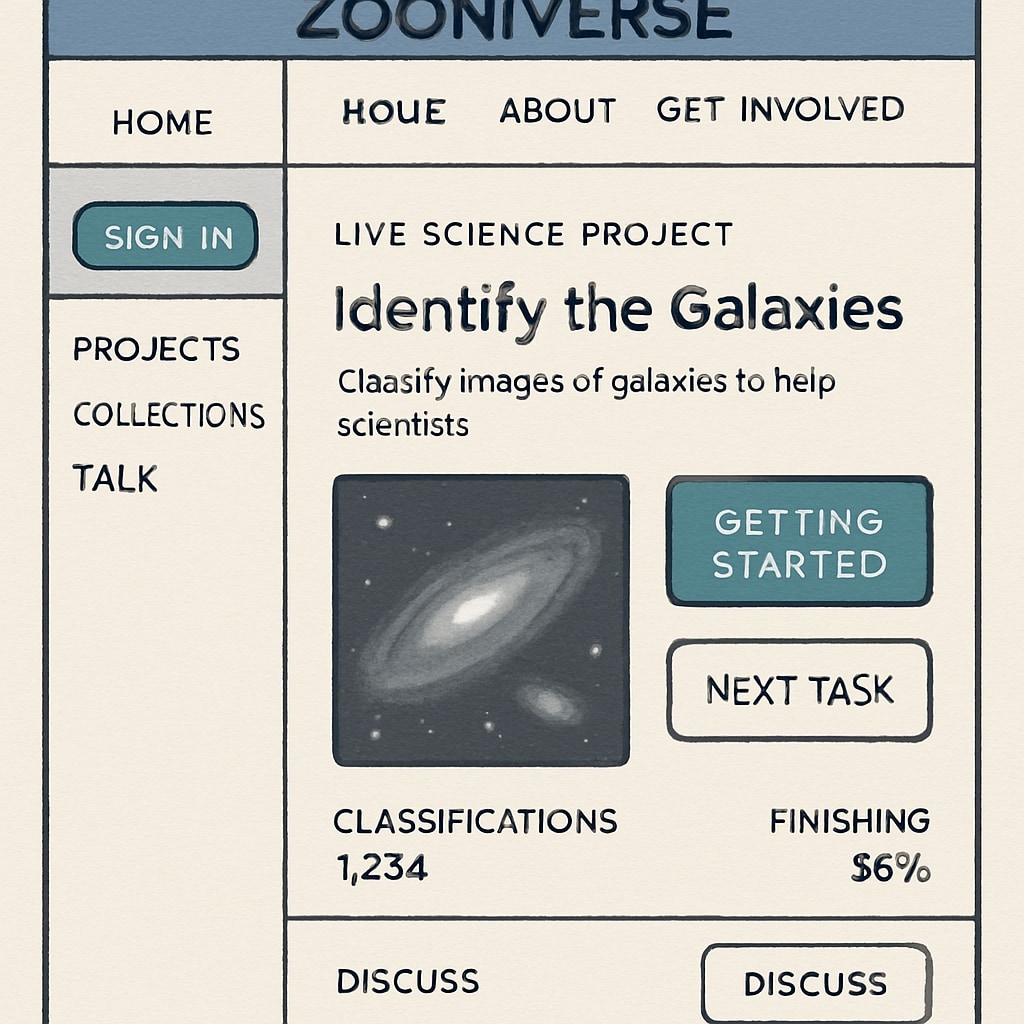Have you ever wondered how young learners can contribute to real scientific discoveries? Through citizen science, Zooniverse, and science projects, K12 students can step into the world of research and make meaningful contributions. Zooniverse, one of the largest platforms for citizen science, offers students the opportunity to collaborate on real-world projects ranging from astronomy to biology. This engagement not only transforms classrooms but also sparks curiosity and critical thinking in students while connecting them to global scientific efforts.
What is Citizen Science and How Does Zooniverse Work?
Citizen science refers to public participation in scientific research, often through platforms that allow people from all walks of life to contribute to data collection, analysis, and interpretation. Zooniverse is a prime example of this, providing an easy-to-use platform where individuals, including K12 students, can assist in projects as diverse as classifying galaxies or identifying wildlife in camera trap images. By breaking down complex tasks into simple, manageable steps, Zooniverse makes science accessible to everyone.
For example, in the Galaxy Zoo project, students help scientists categorize galaxies based on their shapes. This data is crucial for understanding the evolution of the universe. Similarly, in the Snapshot Serengeti project, participants identify animals captured in photos from African savannas, contributing to wildlife conservation efforts.

Integrating Citizen Science into K12 Classrooms
Incorporating Zooniverse projects into K12 education offers a unique way to bridge textbook learning with hands-on experience. Teachers can integrate these projects into science curriculums, enabling students to connect theoretical concepts with real-world applications. For instance, projects focusing on climate change data or migratory bird patterns can complement lessons on ecology and environmental science.
Here are some practical ways to bring citizen science into the classroom:
- Choose age-appropriate projects: Select Zooniverse projects that align with students’ grade levels and interests.
- Incorporate discussions: After participating, hold discussions on the project’s significance and how their contributions support scientific research.
- Set goals: Encourage students to set small milestones to keep them motivated and engaged.
- Collaborate globally: Highlight the international nature of these projects, emphasizing the power of collective effort in solving global challenges.
By participating in these projects, students not only learn scientific concepts but also develop critical thinking, data analysis, and teamwork skills. Moreover, they gain a sense of accomplishment and responsibility toward global issues.

The Benefits of Citizen Science for Young Learners
Engaging in citizen science projects through Zooniverse has several advantages for K12 students:
- Improved Scientific Literacy: Students learn to think like scientists, understanding the importance of data accuracy and hypothesis testing.
- Critical Thinking Skills: Working on real-world problems encourages analytical thinking and problem-solving.
- Social Responsibility: Projects often focus on global challenges such as climate change or wildlife conservation, fostering a sense of responsibility among learners.
- Enhanced Engagement: The hands-on nature of these projects keeps students motivated and excited about learning.
In addition, these experiences can inspire students to pursue STEM (Science, Technology, Engineering, Mathematics) careers, widening their horizons and exposing them to fields they might not have considered otherwise.
Conclusion: Empowering the Next Generation of Scientists
Zooniverse offers an incredible opportunity for K12 students to move beyond passive learning and become active contributors to global scientific efforts. By integrating citizen science, Zooniverse, and science projects into the classroom, educators can inspire curiosity, foster critical skills, and instill a deep sense of social responsibility in young learners. For students, the journey of participating in real-world research is not only educational but also profoundly empowering.
To learn more about citizen science and explore Zooniverse projects, visit Zooniverse’s official website. You can also read about the history and importance of citizen science on Wikipedia.
So, why wait? Dive into the fascinating world of citizen science and help your students discover the scientist within!


